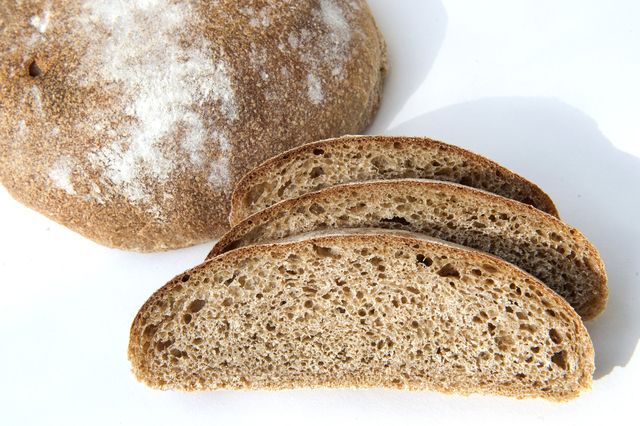Diet helps with celiac disease, hypothyroidism

A reader, 66, writes that she has been diagnosed with hypothyroidism and celiac disease and for two years has followed a gluten-free, vegan, whole-foods diet.
She asks: “Can my diet possibly cure either of my conditions?”
The short answer: No, but the diet might help.
“Celiac disease and hypothyroidism don’t have a cure because they’re … autoimmune diseases, and autoimmune disease is when your body attacks healthy cells by mistake,” says Sheela Kunishige, a registered dietitian and clinical nutrition manager at Centennial Hills Hospital.
But while both celiac disease and hypothyroidism are “not curable,” she adds, “they are manageable.”
Celiac disease occurs when the body is unable to process gluten, a protein found in wheat, rye and barley, Kunishige says.
(Some people also have problems with oats, particularly if the oats were processed in a facility in which the other three problem grains also are processed.)
When a person who has celiac disease ingests wheat, rye or barley, the intestinal villi — or tiny hairs in the intestine that help with the absorption of nutrients — “are damaged by an inflammatory response to gluten,” Kunishige says.
“Diet is a big component” for managing celiac disease, Kunishige says.
People with the disease “will have to avoid gluten their whole lifetime because if they don’t, things like intestinal cancer can happen.
“For the short term, the most important thing is that when you have celiac disease, you have malabsorption of nutrients like vitamin B, vitamin A, vitamin D, vitamin E and vitamin K and (you) are prone to anemia and things like that.”
Hypothyroidism, or underactive thyroid, describes a condition in which the thyroid gland produces insufficient amounts of certain necessary hormones.
The thyroid “is the organ that is in charge of our metabolism,” Kunishige says, and problems with the thyroid can lead to weight gain or weight loss and other problems.
Hypothyroidism, like celiac disease, can’t be cured. But it can be managed, Kunishige says, and, as with celiac disease, diet plays a role.
For example, people with hypothyroidism may be advised to avoid or limit cruciferous vegetables such as cabbage, broccoli and cauliflower.
But, generally, Kunishige says, a hypothyroidism diet is “a healthy diet in general.”
Meanwhile, following a vegan diet can be fine if people with celiac disease or hypothyroidism have “diversity” in their food choices, Kunishige says.
Otherwise, they may run the risk of becoming deficient in vital nutrients, she says.
It might be worth it for our reader to consult a registered dietitian or talk to her doctor to make sure that the diets she is following are both appropriate for her conditions and provide her with all of the nutrients she needs, Kunishige says.


















